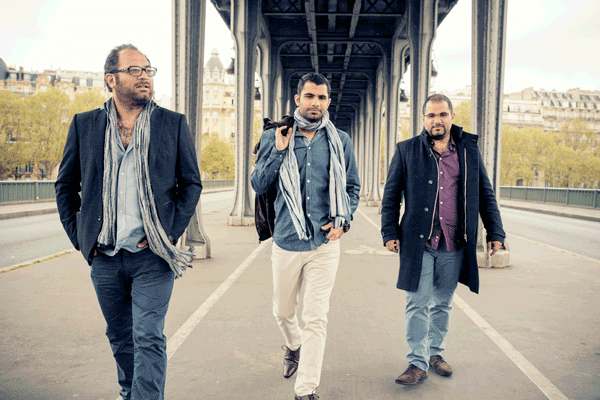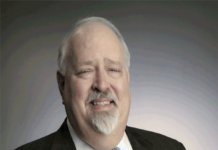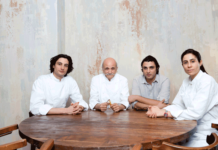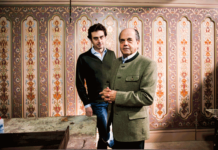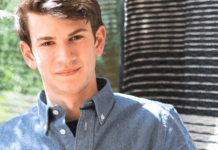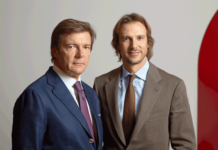Elia, Basil, and Osama Khoury are the three brothers behind the musical ensemble “The Khoury Project”, in which Elia plays the oud, Basil the violin, and Osama the qanun. What is most striking about the Khourys is that they forge ahead where others hesitate. The trio reach beyond the margins of their Middle Eastern musical heritage and have successfully embarked on projects in varying genres including opera, Flamenco, jazz, Celtic, and Indian.
Of Palestinian descent, the three brothers grew-up in Jordan where they began their music careers at a young age. In 2007 they moved to Paris where they now work with artists and institutions from all over the world. All three Khourys hold multiple degrees in musical education and are considered prodigies of their art form.
Tharawat magazine met with Elia (38) and Osama (25) in Paris and spoke to them about trust amongst family members, their wordless communication on stage, and the business of music.
[ms-protect-content id=”4069, 4129″]
Did you always know that you wanted to be musicians?
Elia: Osama always knew. He started out playing the violin but soon got bored. He fell in love with the qanun and so I bought him one. In fact, I got him the best instrument in town!
I am thirteen years older than Osama so I used to take him everywhere with me. I remember we went to a store in Amman and a man asked Osama what he wanted to be when he grew up. He answered, “I am a qanun player!” At seven years old! Can you imagine?
Osama: To me, it was simple. I never really considered any other career option.
Did all three of you feel the same about it?
Elia: I learned to play the oud and cello at a young age. My entire education was then centred on music, first in Amman and later in Istanbul. I then came back to Amman and taught music at university.
Basil learned to play the violin early on and is a real virtuoso.
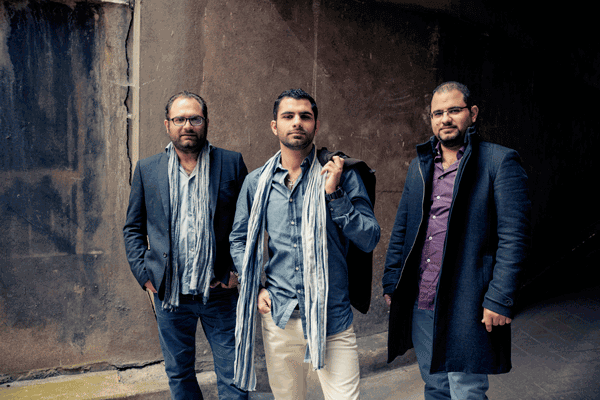
When did three brothers making music together turn into “The Khoury Project”?
Elia: We started “The Khoury Project” as a business venture in 2002. We gave concerts and made every effort to ensure that they sold out. In Amman, the audience is small and they were soon saturated. In 2007, Osama graduated from high school and Basil received his undergraduate degree. It was the perfect time to leave, so we moved to Paris.
Osama: We wanted a bigger city where we could be inspired and where we could potentially find a larger audience. I ended up studying music composition for film in Paris.
Was it a difficult decision to move to Paris together?
Elia: I don’t think it ever occurred to us not to leave together.
Osama: No it didn’t.
Elia: Europeans were opening doors for us in the music world, so it made sense to move.
Did your collaboration change once you started treating “The Khoury Project” as a business?
Elia: Not really, because we never work for the sake of making money. We have always believed that money would eventually come by making sure that we deliver quality work. To us, “The Khoury Project” has always been about reputation. Many people back in Jordan didn’t want us to succeed, but our concerts were always sold out. We made sure everyone came because we are perfectionists and put a lot of sweat and effort into our music. When you are on stage, no one sees how much money you have; people only see what you can do.
How do you communicate on stage?
Osama: We usually play compositions, but there is also a great deal of improvisation. It really depends on the energy of the audience.
Elia: There is this give and take between us. For example, we will be expecting Osama to play a particular piece but, in the moment, he may decide to play something else completely. He knows we can support his spontaneous decisions in face of the audience. Sometimes when it happens, we have a laugh – it’s as if we’re having our own party on stage.
You seem to implicitly trust each other on stage. Do you think this is because you are family?
Elia: No, we have trust with other musicians as well.
Osama: Our musicians have played with us for a long time. We communicate with our eyes.
Elia: Sometimes we don’t even need to prepare. We may not rehearse together for weeks. Trust is a big factor in that. It works because we trust and know each other so well.
You mean to say that this feeling of trust has nothing to do with being brothers?
Elia: (laughs) Of course, it does!
Osama: Actually, talking about trust and family, I think our story began with the support of our mother and father. In our culture, very few parents would have allowed their three sons to become musicians. They put so much trust in us and believed in us before we were successful.
Elia: They let us become musicians. Sometimes I feel bad for them because our cousins are academics, businessmen, and dentists, which is a lot easier to explain to people when they ask what your children do for a living.
Osama: For a lot of people, being a musician basically means that you’re unemployed. A lot of time people seem really confused when they realise that we are happy with our lives.
Is it always so harmonious when you work together, considering there so much trust between you?
Osama: No, we fight!
Elia: Oh, and the naughty one isn’t even here! Basil definitely has a role to play in our arguments. Truthfully, there really is no fight we can’t resolve. There is no sinking our ship!
Osama: Working together has never made any drastic changes to our relationships because, in some shape or form, we have always been working together. I have been performing with my brothers since I was a boy. I have never known anything else.
Elia: You should have seen his attitude at thirteen years old – he had a better work ethic than some of the adult musicians we worked with.
We are all similar and yet very different. We have different qualities. There is no hierarchy between us, which is very rare in any family. The boss on stage is Osama, I am business minded, and Basil is the production wizard.
Osama: (Laughs) We are lost without Basil. He is so tidy and we are so messy!
Elia: Basil balances us out. I guess we all balance each other out. For instance, I never send business e-mails without checking with my brothers first.
Osama: Listening to each other also always brings in different points of view. It’s about standing behind the same values.
Elia: It’s a matter of trusting each other’s judgment, of being stronger together.
How do you plan on scaling a business that is centred around the three of you?
Elia: We are now exploring the idea of becoming more corporate and bringing investors on board. Up until now, we have always just saved as much as possible and reinvested into new projects. We now want to grow but need to prepare for it.
Osama: We have a business consultant.
Elia: We are writing our own business plan and are well on the way. All the successes achieved, reputation gained and skills built on both the artistic and business levels so far, should take shape in a corporation now.
Osama: Every project has a different direction so we don’t really know what is next in terms of style.
How do you deal with disappointment?
Elia: We don’t care. We knock at the next door and we try something else. We don’t know where we’re going but we do know we will reach our destination.
Osama: We become more stubborn actually!
Does your strength come from being a trio?
Osama: Making music together just makes sense to us. I don’t think we would want to work without each other. It is about trust. If I had a sum of money, why would I share it with someone I didn’t know as opposed to my brothers?
Elia: We would not have had the same success alone. We work together. People have trusted us and we have trusted them. Our word is a binding contract.
Tharawat Magazine, Issue 25, 2015
[/ms-protect-content]


